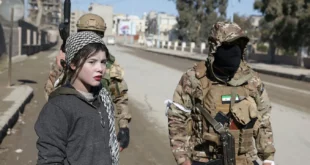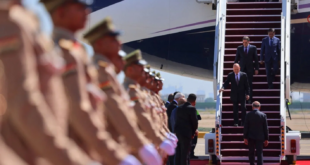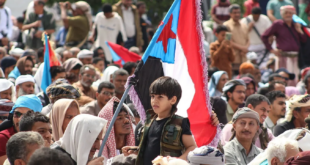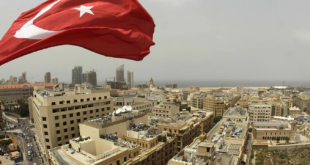The Kurdistan Region of Iraq will not become a hub for terrorism, Kurdish officials said on Sunday, after authorities arrested the man suspected of shooting dead a Turkish diplomat last week.
The Turkish official was one of three people shot dead last Wednesday when a gunman opened fire in a restaurant in the Iraqi Kurdish regional capital, Erbil.
The suspect in the assassination of the diplomat is the brother of a female member of the Turkish parliament, according to reports.
A statement from a Iraqi Kurdish security force, the Counter Terrorism Department, gave the suspect’s name as Mazlum Dag.
Turkey’s pro-Kurdish People’s Democratic Party (HDP) later confirmed that the man who had been arrested was the brother of one of its lawmakers, Dersim Dag.
“Kurdistan will never become the headquarters of terrorism…criminals will never be able to hide,” Masoud Barzani, the former president of the Kurdistan Region of Iraq, said in a statement.
“I commend the security and anti-terror forces of the Kurdistan Region for arresting the suspects,” the official said, calling for all parties to not bring their disputes to the northern region of Iraq.
The Kurdistan region will remain a “safe haven,” vowed Prime Minister Masrour Barzani, son of former president Masoud.
The success of the arrest is due to “the selfless, determined efforts of the security forces and the constant support of our people,” Mr Barzani said.
Meanwhile, in Baghdad, security forces launched the second phase of its military operation against ISIS on Saturday, amid fears that sleeper cells were using the area to regroup.
“The second phase of operation “Will of Victory” is expected to bolster security and stability in northern areas of Baghdad and the surrounding areas of Diyala, Saladin and Anbar provinces,” a statement from Iraqi security forces said.
Iraqi armed forces, paramilitary units of the Iran-backed Hashed Al Shaabi, tribal groups and US-led coalition warplanes were all participating, according to the statement.
Baghdad declared victory over the group, which once held large swathes of the country, in December 2017. But after it was defeated and driven out of areas it controlled for years, its militants have adapted their tactics to insurgent-style attacks.
The terror group has recently mounted a series of hit-and-run attacks aimed at undermining the Iraqi government.
ISIS once held not only large areas of Iraq, but Syria too. In March, it lost the last territory it controlled in Syria.
 Eurasia Press & News
Eurasia Press & News



